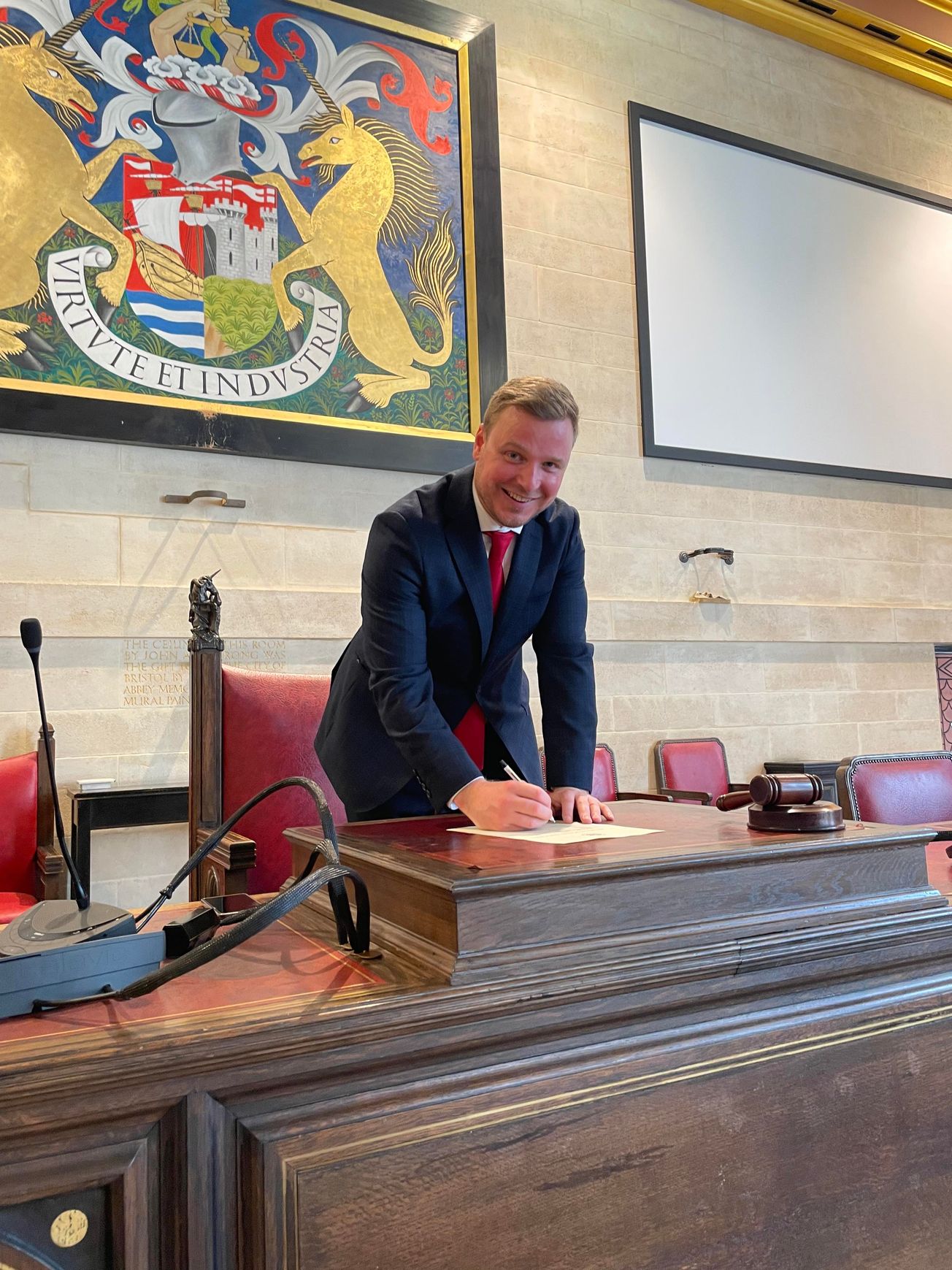by Isobel Downie, Politics and International Relations, Second Year
Labour’s Kye Dudd recently won the Southmead by-election, beating the Green Party candidate by just 52 votes. What does this mean for Bristol?
Despite the low turnout of 21.2 per cent (1,891 votes cast), the Green Party vote experienced an unprecedented surge of 19 per cent. The Conservative Party’s vote was halved, with the candidate receiving only 279 votes and placing a distant third.
In the short term, this does not change much. The previous councillor (whose resignation triggered the election) was also a Labour representative. But what this does show is the swing in popularity away from the Conservatives and towards Labour and the Greens in Bristol.
Southmead (Bristol) council by-election result:
— Britain Elects (@BritainElects) February 18, 2022
LAB: 41.2% (-1.9)
GRN: 38.5% (+19.7)
CON: 14.8% (-13.4)
LDEM: 4.3% (-5.7)
TUSC: 1.2% (+1.2)
Votes cast: 1,891
Labour HOLD.
It is clear that Bristol is demanding progressive policies: both parties want to tackle climate change and social inequality, amongst other issues. But the problem is that neither the Greens nor Labour want to cooperate.
Indeed, Mayor Marvin Rees has had varying success with implementing his agenda. The council has already struggled to agree upon a budget, with the previous attempt ending in deadlock and a weak agreement to finalise a plan by the 2nd March.
It is clear that Bristol is demanding progressive policies
Although both Labour and the Greens operate on the left wing of the political spectrum, there is clearly no guarantee that they will be able to cooperate.
But, if Labour and the Greens can foster good working relations, their time in power could be transformational for Bristol.
Shockingly, 21 per cent of Bristol’s children live in low-income families and the city is ranked 55 in the country for the size of inequality in employment between white British and ethnic minorities. This cannot be allowed to continue.
We miss out in Southmead by just 52 votes.
— Bristol Green Party (@bristolgreen) February 18, 2022
We remain the joint-biggest party in #Bristol and will continue to work hard for the city day in, day out.
Congratulations to Ed and team for an amazing effort. https://t.co/16YaTaHrCz
The Mayor and the Council have the opportunity to truly invest in the City and create lasting change, for example through the ‘No Child Goes Hungry’ campaign. But if the Greens and Labour continue to disagree, then this opportunity for change will pass the City by.
The Greens must be willing to cooperate on shared goals, rather than solely opposing the Mayor’s agenda.
Bristol is replacing the traditional Conservative-Labour dichotomy
Labour’s victory in the Southmead-by-election confirms Bristol’s reputation as a progressive and left-wing city. However, it must be noted that the Conservative Party does also hold 14 council seats.
This is not an insignificant number and suggests that there are pockets of Conservative support in the city, for example in the suburb of Stoke Bishop.
It is likely that Conservative Councillors will clash with the Mayor, particularly over issues of spending. This reinforces the need for the Labour Party and Greens to cooperate if they are to achieve shared goals.
Kye's now sworn-in as a councillor! 🎉
— Bristol Labour Group (@LabourBristol) February 22, 2022
Thank you to the voters who put their trust in him to deliver on Southmead's priorities - he's looking forward to getting on with the job pic.twitter.com/AO03REA0t7
The by-election also brought the issue of the resurgence of the Green Party to the forefront of Bristol's politics.
It is likely that a growing awareness about climate change, combined with a more moderate Labour Party inspired many progressive voters to switch to the Greens.
The Mayor has already taken significant steps towards tackling the climate crisis, for example, in 2018 Bristol was the first city to declare a climate emergency and it aims to become carbon neutral by 2030.
If Bristol is to be reformed, the two leftist parties need to learn how to work together
The election result shows that Bristol is replacing the traditional Labour-Conservative dichotomy with a race between two left-wing parties.
And in a city with two large universities, the Green Party’s more radical message is likely to gain greater traction in the years to come.
Indeed, the Green Party has advocated scrapping tuition fees, reintroducing student grants, increasing funding for higher education and implementing better quality housing. All these proposals will undoubtedly appeal to students, whilst also starkly contrasting with the Labour Party’s lack of a firm commitment to scrapping tuition fees.
But in the years before the Greens secure a majority of seats, if Bristol is to be reformed, the two leftist parties will need to learn how to work together. The Southmead-by-election reminds Labour and the Greens that they will need to cooperate in order to truly advance social and climate justice goals.
Featured image: Kye Dudd | Credit: Bristol Labour Group
What do you think the election victory means for Bristol? Let us know @EpigramOpinion !
If you have an opinion to share, or want to get involved with the team, head to our Facebook page









